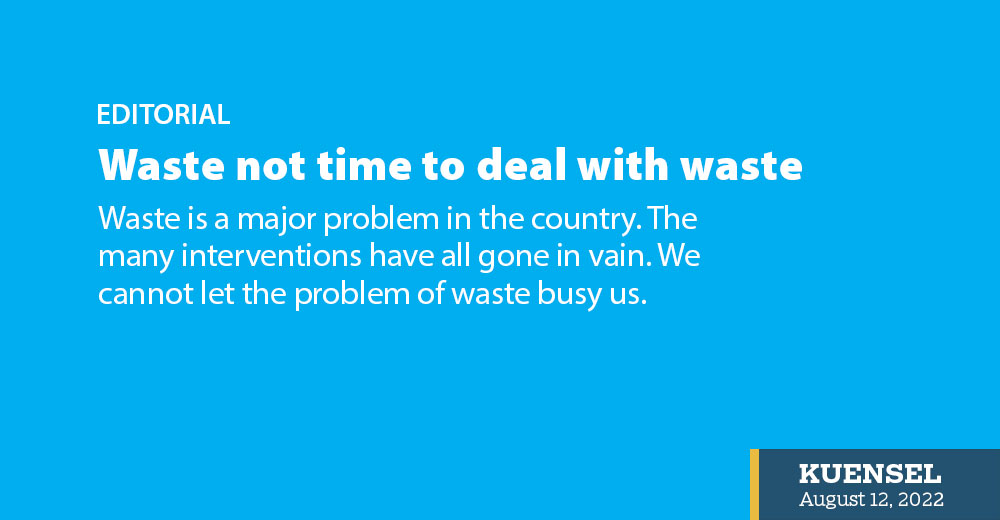Waste is a major problem in the country. The many interventions have all gone in vain. We cannot let the problem of waste busy us.
Recently, close to 1,000 people launched a cleaning campaign in Thimphu. The amount of waste they collected was a sobering reminder that urgent action is needed to address the issue of mounting waste.
Organised by the National Environment Commission and other relevant agencies, including civil society organisations, the campaign’s aim is to keep the momentum so that, in the long run, our people are educated and aware of the hazards associated with mindless dumping of waste.
Henceforth, there will be a proper monitoring system in place and defaulters will be fined. We have tried this approach before. There is a need to ensure that such a system does not fail again.
Bhutan produced 172 metric tonnes of waste a day; 45 percent of it is kitchen waste.
We know what doesn’t work. We have not been able to effect a behavioural change which can only be achieved when people start accepting the responsibility for their waste.
National Environment Commission’s idea to create a circular economy where waste would be recycled is also not new. The implementation of ideas has been lacking.
Another major problem is the collection of waste in the major thromdes. Residents of thromdes say that waste collection is erratic. Some hire vehicles to dump waste, which is expensive. That’s probably why the problem of waste never goes.
In Thimphu, there is a plan to construct a sanitary landfill to replace the open dump yard in Memelakha is welcome. The waste disposed of at the landfill increased by about 4,800 metric tonnes in 2021 compared with 2019. The lifespan of a new sanitary landfill is dependent entirely on the segregation and recycling of waste. That means there is an opportunity for us to invest a lot in waste recycling, which is a very profitable and clean business.
The flagship programme is expected to introduce waste segregation, collection, transportation, treatment, recovery, and disposal facilities throughout the country in a phased manner, starting with Thimphu. This is the way to go. When the population increases, waste also increases. Recycling is the only way forward.
What we need to remind ourselves is that the impact of unmanaged waste on the country’s fragile ecology will be costly.


